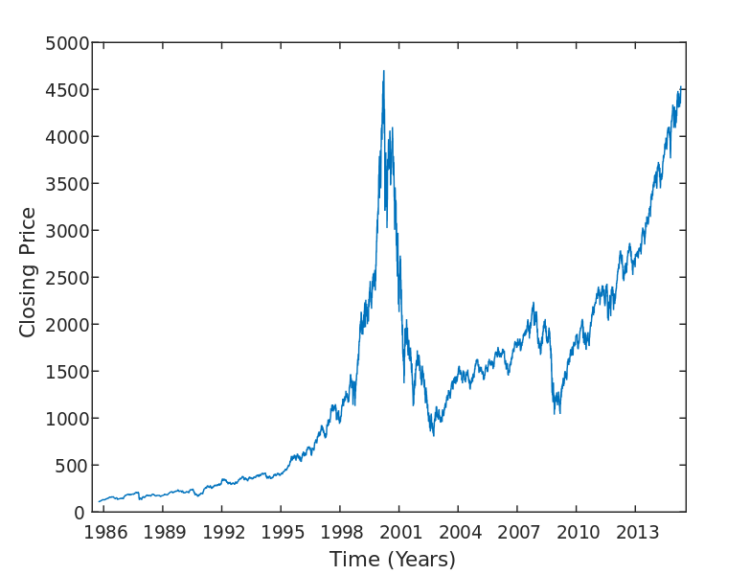Investors on High Alert for Minor Indicators Amid Pandemic Impact
- Investors are becoming more sensitive to economic data releases
- Volatility on Wall Street has increased in the past four years due to minor economic data
- Formerly less reactive indicators have come into focus
- 1% swings followed the release of specific economic data like University of Michigan’s consumer confidence survey, personal-income and spending data, ADP private payrolls, and durable-goods orders in manufacturing
- Fed-decision days have become more volatile
- Investors using options that expire at the end of the day and single-name exchange-traded funds could be catalysts for big market swings
- S&P 500’s recent push to fresh record highs may contribute to increased volatility
- Recession fears and inflation worries have investors on edge
- Investors are quick to react to economic data due to rapid-fire pace of news flow
Investors have become more sensitive to economic data releases, leading to increased market volatility. Bespoke Investment Group found that the S&P 500’s daily move up or down has risen from 0.81% before the pandemic to 0.94% after March 2020 lockdowns. Minor indicators like University of Michigan’s consumer confidence survey, personal-income and spending data, ADP private payrolls, and durable-goods orders in manufacturing have caused 1% swings. The Fed’s focus on job openings to unemployed ratio has also increased attention on the JOLTS data. Options expiring at the end of the day and single-name exchange-traded funds could be catalysts for big market swings. With S&P 500 reaching record highs, investors are quick to react to any signs of economic weakness.
Factuality Level: 8
Factuality Justification: The article provides accurate and objective information about the increased volatility in the stock market due to economic data releases after the pandemic. It cites sources and experts for its claims and discusses various factors contributing to this phenomenon. However, it could have provided more context on the specific economic indicators that are causing the most significant reactions.
Noise Level: 6
Noise Justification: The article provides some relevant information about the increased volatility in the stock market due to economic data releases and the impact of the pandemic on investor reactions. However, it also contains some repetitive information and focuses on specific examples without exploring the broader implications or long-term trends. It lacks a thorough analysis of the underlying causes and potential solutions for this phenomenon.
Public Companies: S&P 500 (SPX), Dow Jones Industrial Average (DJIA), Nasdaq Composite Index (COMP), LPL Financial (), Natixis Investment Managers Solutions (), Bespoke Investment Group ()
Key People: Jack Janasiewicz (Portfolio Manager at Natixis Investment Managers Solutions), Jeffrey Roach (Chief Economist at LPL Financial), Jerome Powell (Fed Chair)
Financial Relevance: Yes
Financial Markets Impacted: Wall Street, S&P 500 index, Dow Jones Industrial Average, and Nasdaq Composite Index
Financial Rating Justification: The article discusses the increased volatility in financial markets due to heightened sensitivity of investors to economic data releases, particularly during the pandemic. It mentions how certain economic indicators have a larger impact on market movements such as job openings-to-unemployed ratio and inflation data, which affects the S&P 500 index, Dow Jones Industrial Average, and Nasdaq Composite Index.
Presence Of Extreme Event: No
Nature Of Extreme Event: No
Impact Rating Of The Extreme Event: No
Extreme Rating Justification: There is no mention of an extreme event in the text.
Move Size: No market move size mentioned.
Sector: All
Direction: Up
Magnitude: Large
Affected Instruments: Stocks
 www.marketwatch.com
www.marketwatch.com 





